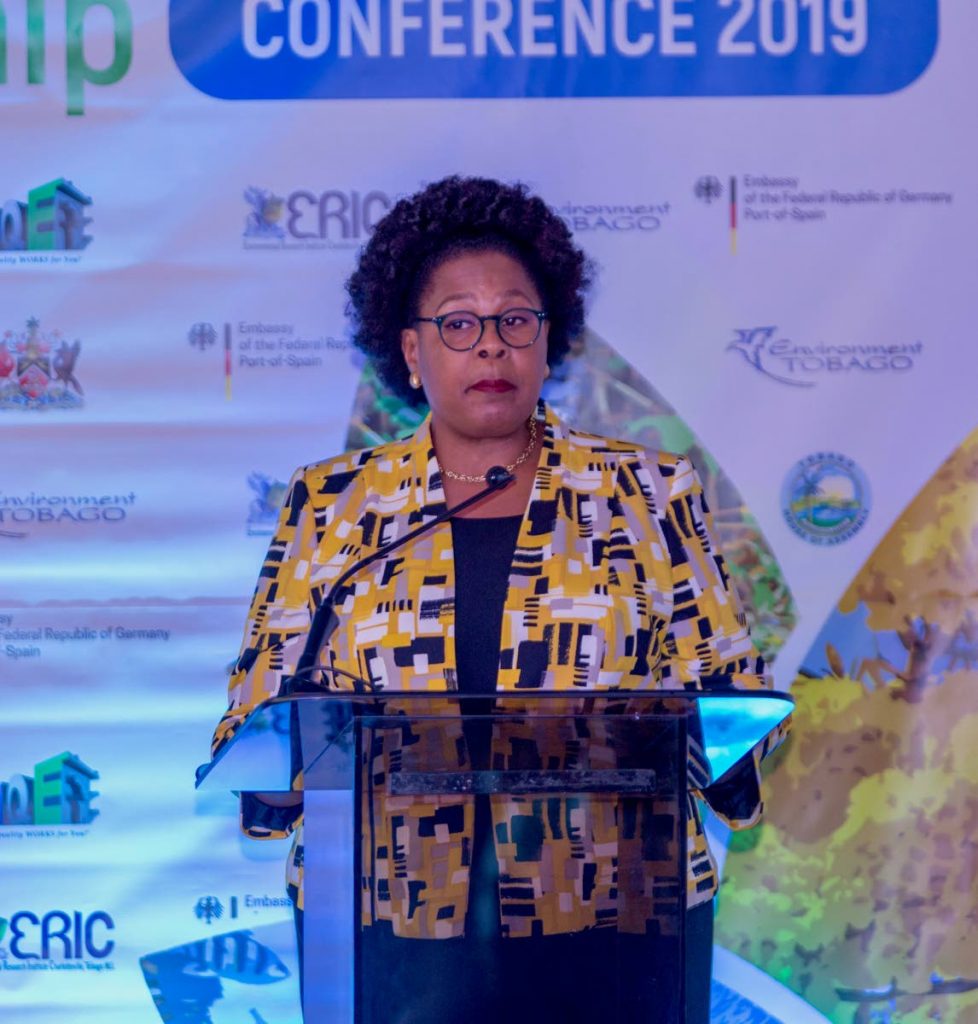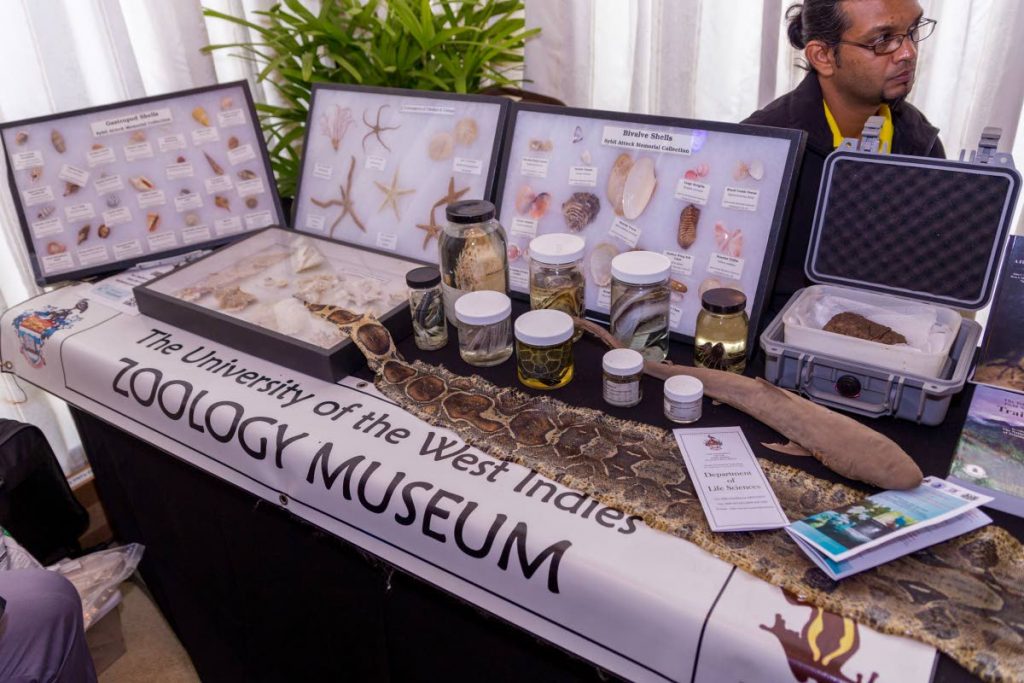Paula-Mae: Focus on science to find solutions

“Be impatient, seek immediate gratification… this hardly sounds like the advice normally given in any serious field of endeavour, but in the instant circumstances, I think it appropriate.”
So said President Paula-Mae Weekes as she addressed attendees at the inaugural Tobago Environment Partnership conference at Mt Irvine Resort on Monday.
During the two-day conference, stakeholders from various sectors, including industry, academia, researchers, regulators, NGOs and law enforcement, gathered to present and discuss a range of topical environmental issues.
“We may be a speck on the globe, but it is imperative that we take up the mantle of responsibility towards the environment and we must do this today,” Weekes said in her keynote address.
She said in going forward extra effort and investment, are critical to increasing and improving the levels and depths of scientific research.
“Our national university, the University of TT, should be well positioned to spearhead the endeavour, given its stellar marine and environmental programmes. The sheer richness and range of our biodiversity demands a renewed emphasis on research and data collection, moreover, it is widely accepted that the future of this planet and of our country will be shaped by science and innovation. “Focus therefore needs to be placed on the fields of science, technology, engineering and mathematics; if we are to tackle environmental degradation successfully and define more clearly our most pressing and environmental problems,” the President said.
She said the environment was not uppermost in the mind of the average citizen. Many would repeatedly come across the slogan "Reduce, Reuse, Recycle," but this, she said, is not enough to change the prevailing culture of ambivalence towards the environment.
“People know that one ought not to litter the streets or discard fridges and washing machines in our rivers, but, given our levels of pollution, it is obvious that this basic awareness has not translated into a change of habit. As evident as it may be, many people do not connect indiscriminate dumping and illegal disposal of waste to the flooding that wipes away their homes and livelihoods.
"If our population is to embrace responsibility for its environment, it is critical that those who are so delegated paint a clear and cogent picture…unclogged watercourses, lush verdant hillsides, colourful, vibrant coral reefs, clean pavements, clear blue skies over the capital and healthy and thriving ecosystems. We have to match those images with an equally clear roadmap so that everyone would know that they are achievable and then can get onboard,” she said.
Chief Secretary Kelvin Charles said as the world grapples with the various environmental issues that seem to be relentless in their mission to disrupt society and lives, it is important to address the way people view and treat with the environment.
“Today, I am sure that most of us recognise that some of the things regarding our environment that we took for granted yesteryear have far more serious consequences than we ever thought. We only have to look at recent events of natural disasters from around the world for us to understand and appreciate why, for example, the Main Ridge was declared a legally protected forest reserve since 1776.
"More and more, people are realising, according to writers Thomas Measham and Stewart Lockie, environmental management is no longer just about protecting pristine ecosystems and endangered species. It is also about calculating and managing risks to human communities of rapid environmental and technological change.
“The time has therefore come for all of us to adopt a mindset that takes keener interest in the environment.”
Charles noted that in addition to climate change, other key environmental issues include waste disposal, overpopulation, loss of biodiversity, water scarcity and water pollution, deforestation, and of particular import to TT, coastal erosion.
He said it was imperative that everyone takes personal responsibility for managing the environment.

“As the Tobago House of Assembly, we have a responsibility to lead the way in promoting environmental responsibility and stewardship. We shall continue to solicit the support from residents and visitors alike, in an effort to protect and preserve our portion of the environment.”
Environment Secretary Kwesi DesVignes said despite several high-level summits and conferences, signing protocols, setting goals and targets, Tobago is still grappling with the associated effects of climate change manifested in coastal erosion caused by rising sea levels, as well as coral bleaching. To this end, he noted that the time had come to take definitive action in Tobago.
“Having embraced consumerism into our cultural tapestry, we are dealt several self-inflicted wounds through exponentially increased and pyrogenic pressures on the environment," DesVignes said.
“We are in need of ambassadors, of the movement of enthusiasts, leaders, advocate, champions, social-media influencers, experts in all spheres to direct individual and collective attention to defend the island from man-made pollutants and polluters, from adverse climatic conditions as well. Tobago needs advocates that can chart a course which will allow for people to hone productive and creative industries from the gifts which are natural, ambassadors who are progressive, yet protective.”


Comments
"Paula-Mae: Focus on science to find solutions"